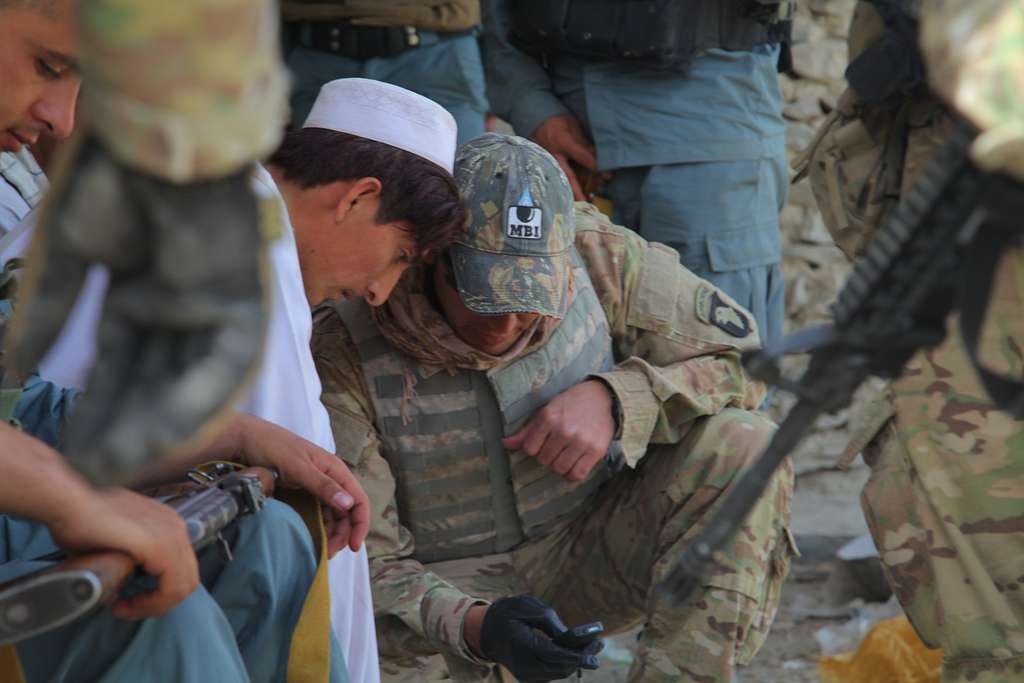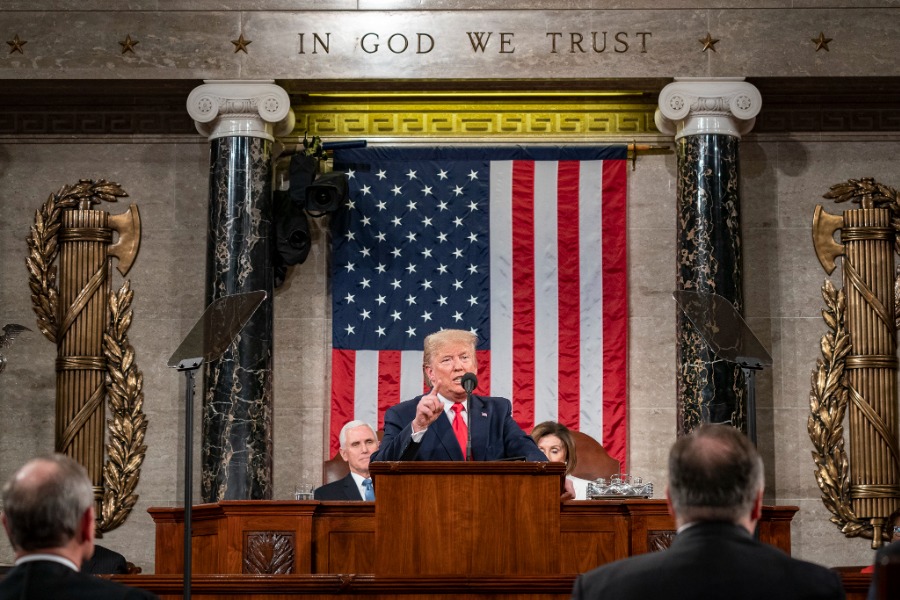Congress Should Oversee America’s Wars, Not Just Authorize Them
Nearly 17 years after the 9/11 attacks, a bipartisan coalition of senators has put forward legislation that promises to overhaul the legal framework for America’s worldwide campaign against terrorism. Proponents of this measure argue the existing authorization for military force—an AUMF in wonk-speak—passed back in September 2001 has become woefully outdated. The failure to modernize it, supporters say, represents a dereliction of duty by Congress.
Published by The Lawfare Institute
in Cooperation With

Nearly 17 years after the 9/11 attacks, a bipartisan coalition of senators has put forward legislation that promises to overhaul the legal framework for America’s worldwide campaign against terrorism. Proponents of this measure argue the existing authorization for military force—an AUMF in wonk-speak—passed back in September 2001 has become woefully outdated. The failure to modernize it, supporters say, represents a dereliction of duty by Congress.
They have a point. The text of the 2001 AUMF no longer bears much resemblance to the wars we are fighting and that we will continue to fight for the foreseeable future. As a matter of both constitutional good practice and common sense, the case for an updated statute is clear.
The problem is that, while a new authorization is legally desirable, its real-world impact is likely to be minimal—doing little more than sanctioning military operations the executive branch is already prosecuting. Lawmakers who portray passage of an AUMF as the ultimate fulfillment of their war-powers responsibilities therefore risk elevating constitutional form over national security substance—while neglecting the far more powerful but less formal tools Congress possesses to influence America’s post-9/11 wars for the better.
That is unfortunate because the need for thoughtful, energetic congressional activism has never been greater. From Afghanistan to Syria to the Sahel, multiple complex U.S. military operations are unfolding . Members of Congress are uniquely positioned to scrutinize these efforts and the strategy underlying them, identify any flaws and failures in policy, and inject innovative or disruptive new ideas into the public debate that will make success more likely.
In the mid-2000s, for instance, it was Members of Congress from both parties who were pivotal in challenging—and eventually overhauling—the Bush administration’s strategy in Iraq.
During those years, senators like John McCain and Joseph Lieberman (for whom we worked at the time) regularly traveled to the Middle East, meeting with military commanders and frontline forces, while back in Washington, they engaged not only the administration officials responsible for Iraq, but also think tank scholars, reporters, and visiting foreign leaders.
These interactions both convinced them that White House claims about the war’s progress were mistaken and brought them into contact with dissidents, inside and outside government, who were arguing for an alternative strategy—a population-centric counterinsurgency campaign, backed by more forces. McCain, Lieberman and a few others then used the congressional bully pulpit to advocate for this approach, which the Bush Administration eventually embraced. The result was the 2007 “surge” that stabilized Iraq.
Of course not all ideas emanating from Capitol Hill are good ones, to put it mildly. Nor is it the appropriate role of Congress to micromanage the day-to-day conduct of a war through binding legislation.
Rather, the mission of Congress should be to provide smart, determined oversight—asking tough, well-informed questions, illuminating and demanding accountability for failures, and encouraging fresh thinking. To that end, members must be willing to invest the considerable time and effort to develop deep expertise in national security, especially around the conflicts we are fighting.
Congress is also unique in its authority to peer through the cloud of secrecy that otherwise necessarily cloaks much of the conduct of war. This is all the more critical given the natural tendency of the executive branch under every administration—like any bureaucracy—to convince itself that whatever it is doing is working and that patience will ultimately vindicate the existing approach.
Advocates of a new authorization for use of military force sometimes argue that the authorization process itself—including some sort of periodic renewal mechanism—is the best guarantor for this kind of congressional overwatch. Unfortunately, this is mistaken.
On the contrary, past AUMF debates are striking for their failure to have anticipated the problems that arose in the conflicts they authorized. Current congressional deliberations around a new statute also don’t inspire much confidence in this respect: Those debates have focused thus far on procedural questions while neglecting the substantive issues about the wars the resolution would endorse.
Nor should intensive congressional scrutiny take place only every few years. Rather, it is a continuous responsibility for Congress that should be pursued independent from any AUMF mechanism. Members should be traveling and investigating, talking to experts, fleshing out alternative ideas, and working with executive branch officials and military leaders to improve the conduct of operations critical to our national security.
Too little of this seems to be happening now; late last year, after the combat deaths of four servicemembers in Niger, many legislators admitted they did not know U.S. troops were deployed there.
None of this is to diminish the constitutional case for passing a new authorization for the use of military force. But lawmakers owe our warfighters and our citizens more than an updated AUMF. It is knowledgeable, constructive oversight of today’s wars that is the most impactful contribution that Congress can make to our national security—and failure to provide it, an even more problematic abdication of responsibility.





